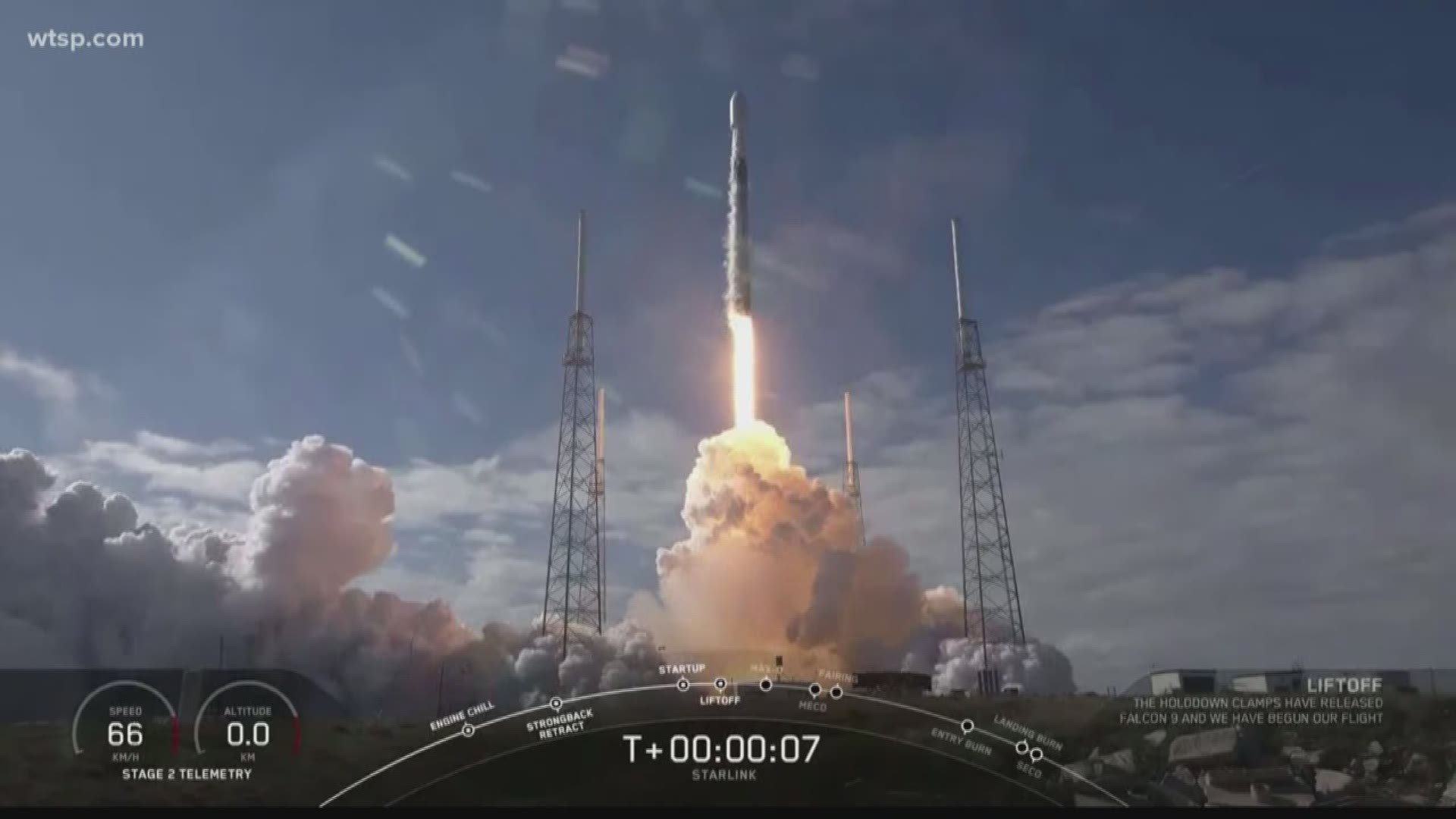CAPE CANAVERAL, Fla. — SpaceX successfully launched another 60 Starlink internet satellites into space.
After two previous launch attempts scrubbed because of weather and equipment, a Falcon 9 rocket carrying the satellites launched Monday morning from Kennedy Space Center in Cape Canaveral, Florida.
While the satellite deployment into orbit was a success, the Falcon 9's first stage booster failed to land on the drone ship Of Course I Still Love You. This particular booster, which has flown three times before, landed in the water right next to the drone ship.
SpaceX still plans to recover the two halves of the rocket's payload fairings, which is the nosecone. Those pieces are set to be caught in giant nets on boats GO Ms Tree and Go Ms. Chief in the Atlantic Ocean.
PREVIOUS STORY:
The test-fire is complete and, so far, it's all systems "go" to launch SpaceX's latest batch of 60 Starlink internet satellites.
The company's Falcon 9 rocket is slated for liftoff no earlier than 10:25 a.m. Sunday, Feb. 16, from Cape Canaveral, Florida. Weather likely won't be an issue at launch time, with a 90-percent chance of decent conditions, according to the Space Force's 45th Weather Squadron.
It originally was expected to blast off Saturday but because of poor weather in the recovery area, SpaceX delayed the launch by a day.
SpaceX is unique in that it recovers its rocket boosters for use again in future missions. Sunday's scheduled launch marks the fourth time a single booster will be used for a fourth time, according to Space.com: It previously supported missions in May 2019, July 2019 and December 2019.
A static-fire test of Falcon 9 was conducted Friday in preparation for the weekend launch.
If all goes as planned, there will be at least 300 Starlink satellites above the atmosphere as part of SpaceX's mission to bring worldwide internet access. Such a monumental project requires a lot of satellites, and reports say there could be as many as 1,584 satellites by the end of the first phase.
These many satellites have drawn the ire of astronomers, who complain of obstructed views while using ground-based telescopes.
What other people are reading right now:
- Neighbor linked to death of 6-year-old Faye Swetlik, police say
- Who is Coty Scott Taylor, man linked to Faye Swetlik death?
- Sheriff: Winter Haven woman scammed more than 60 people out of $1.6 million
- Innocent Jacksonville man should not be compensated for wrongful conviction after 42 years in prison, state says
- Video: Speeding car catapults off neighborhood roundabout
- Snakes congregating in Lakeland are just there to mate
- He's been missing since 2000, making him the longest-running Amber Alert in the state



